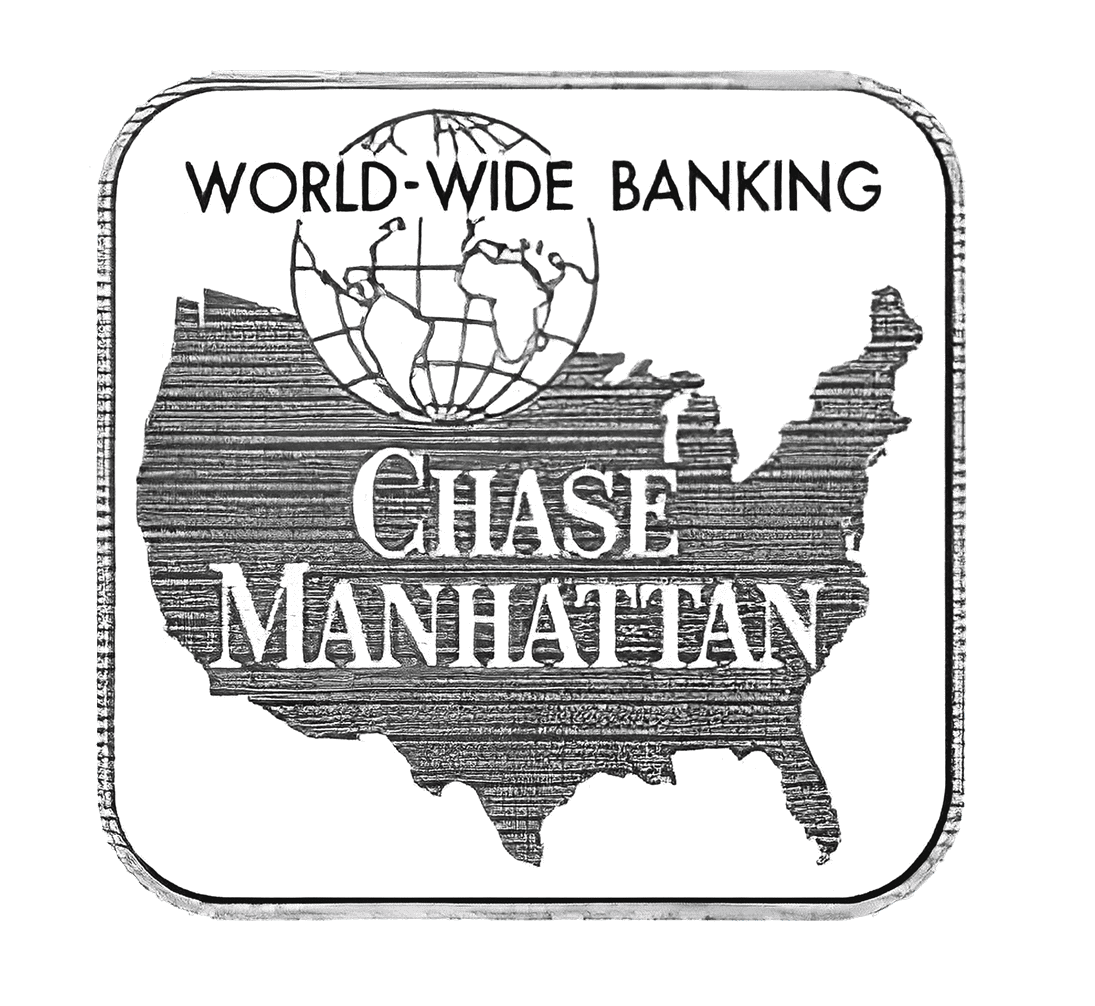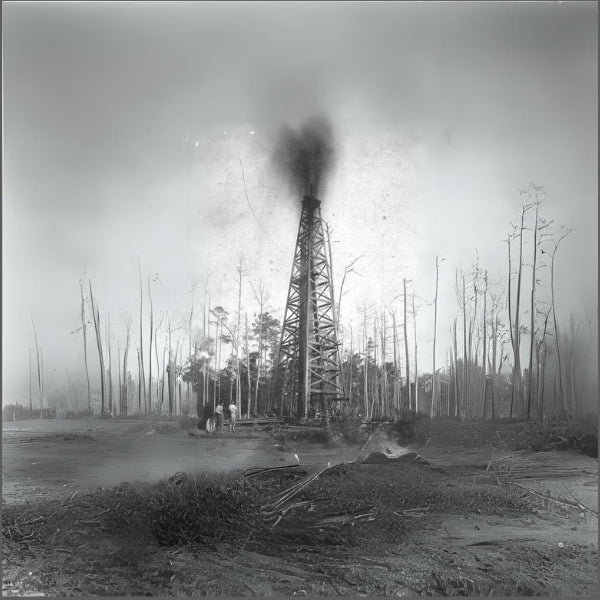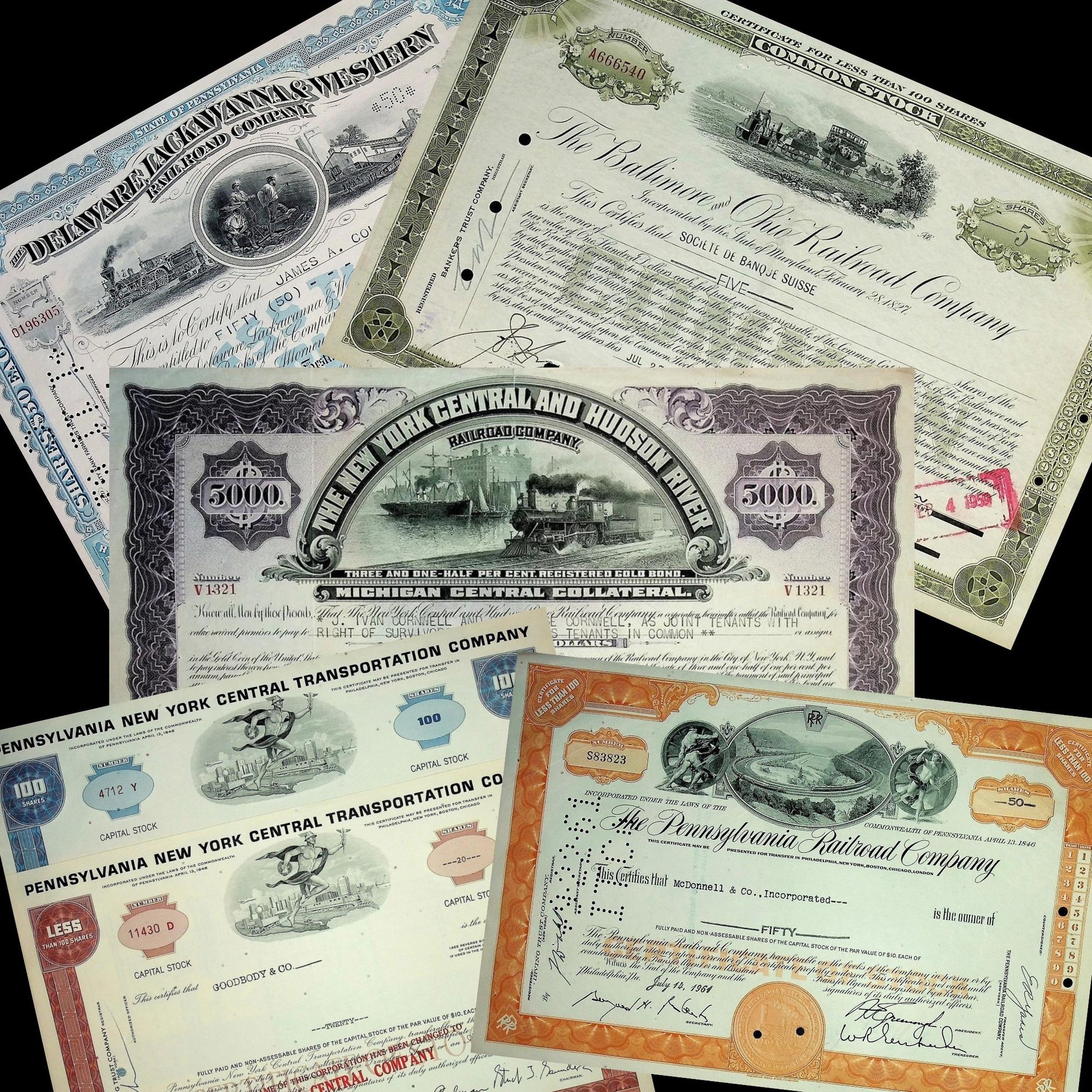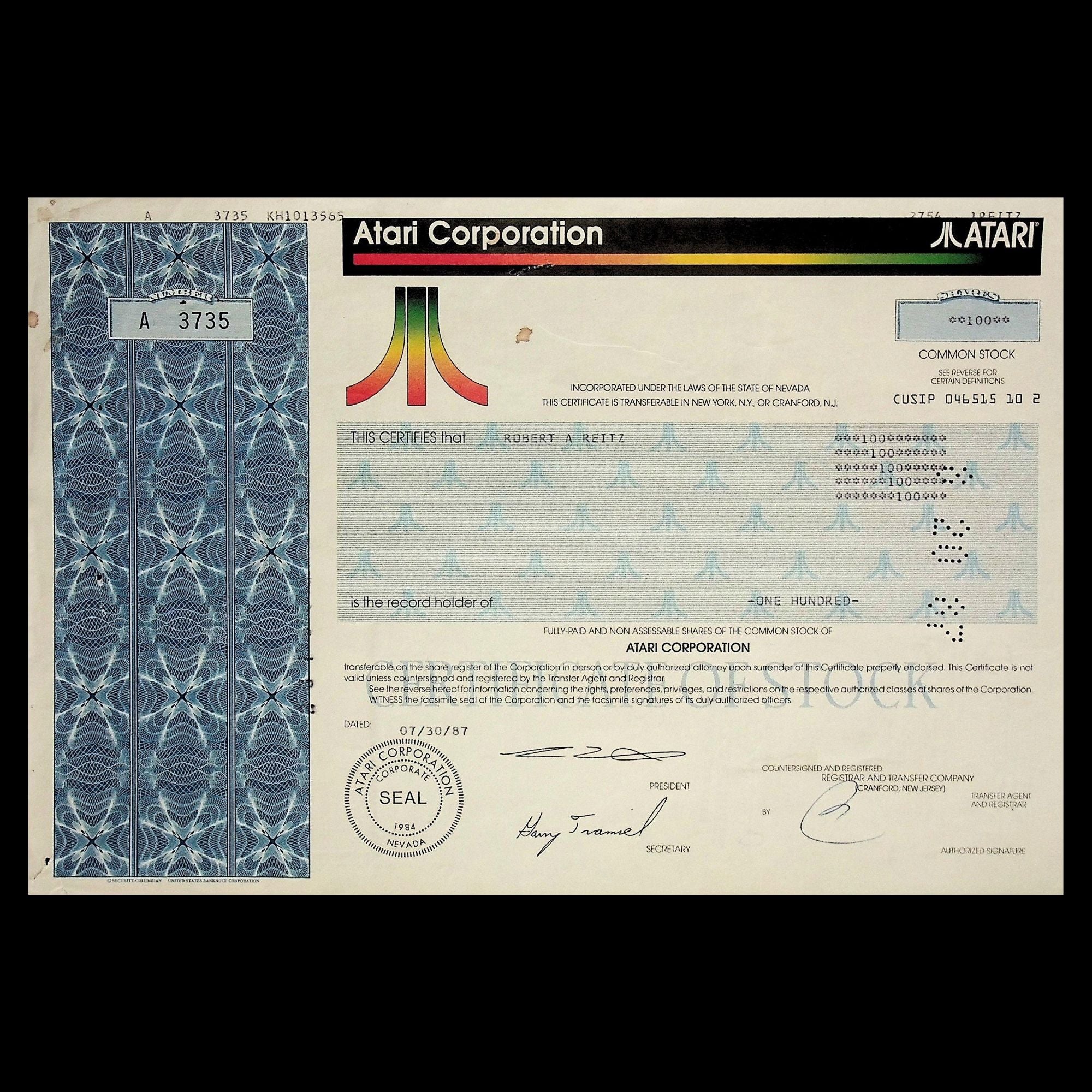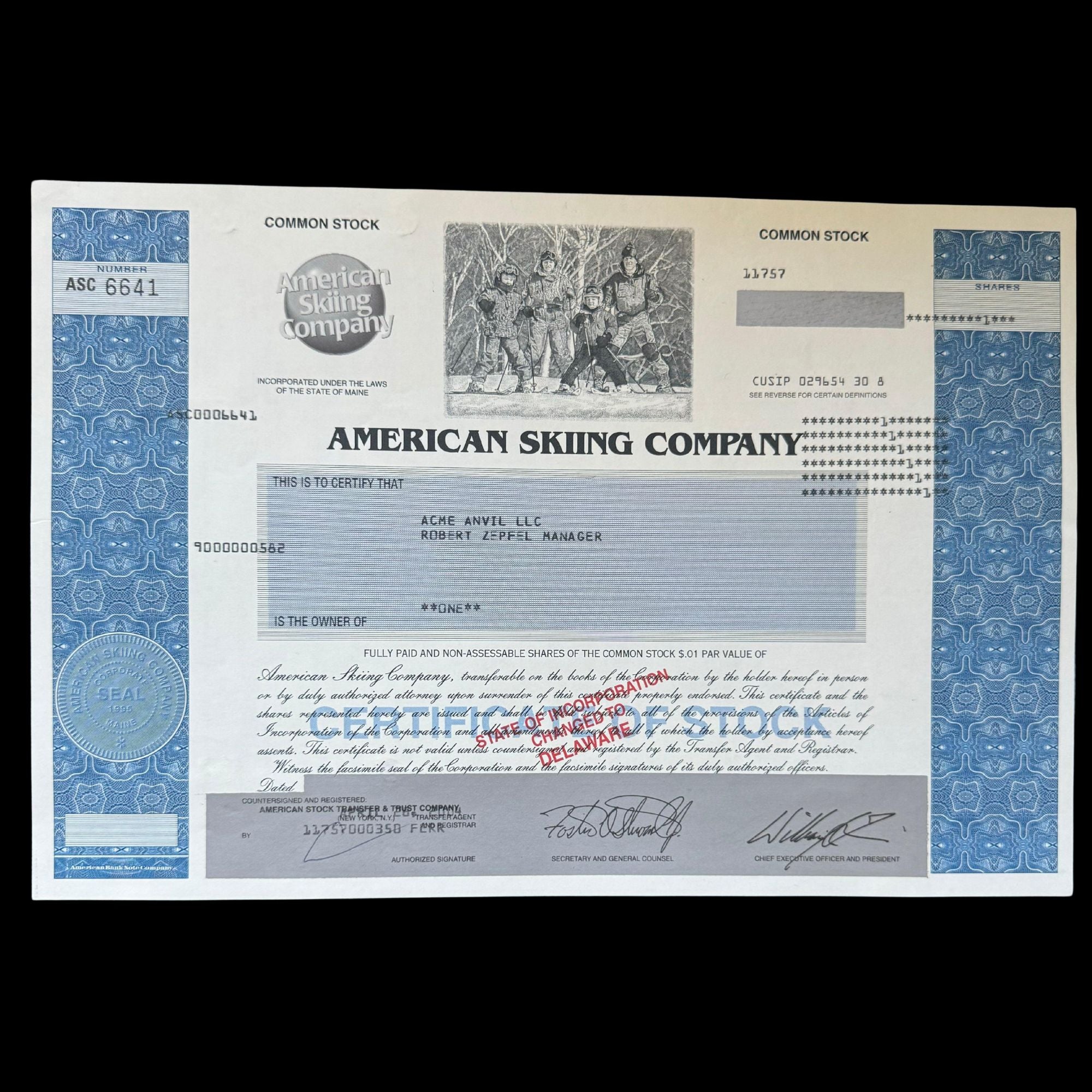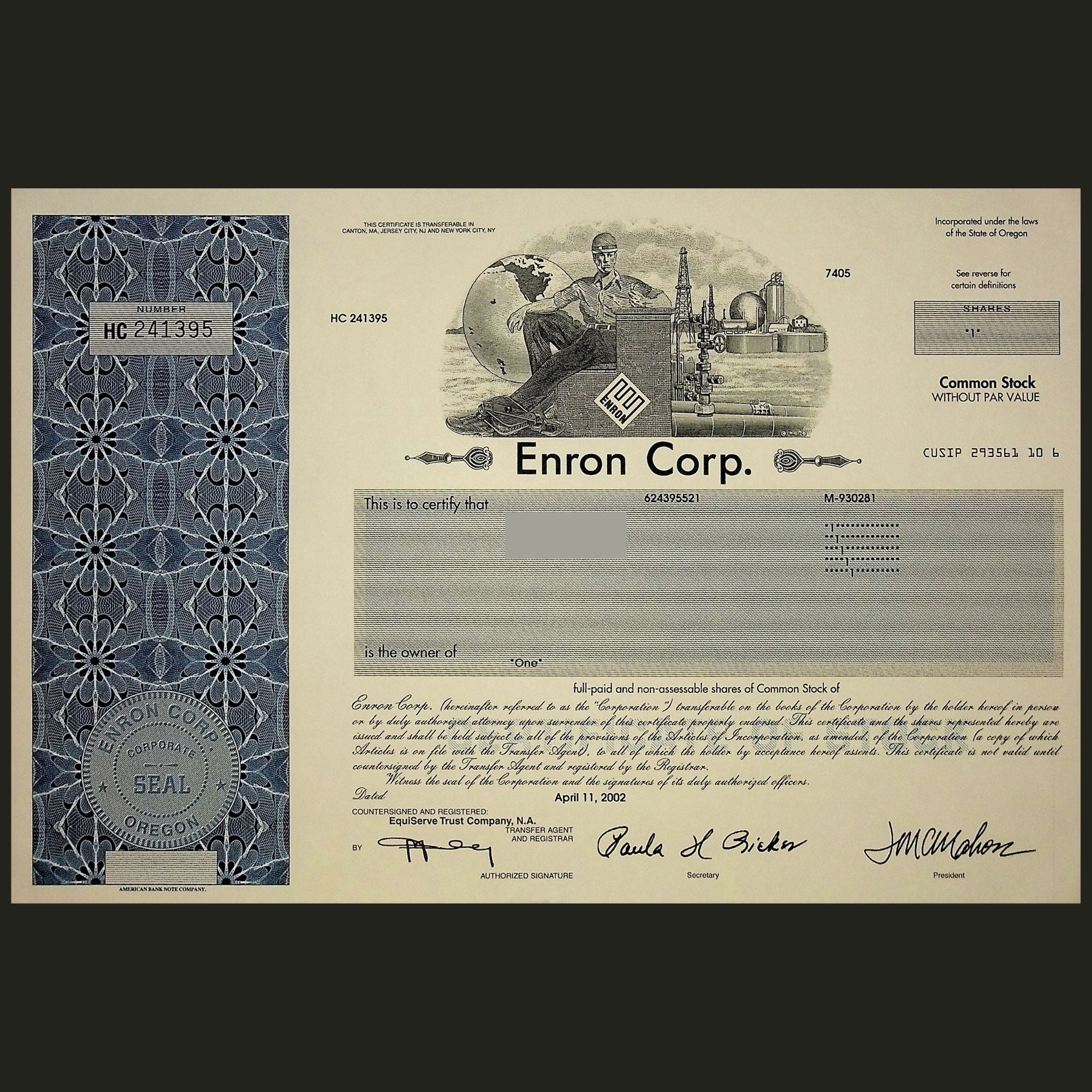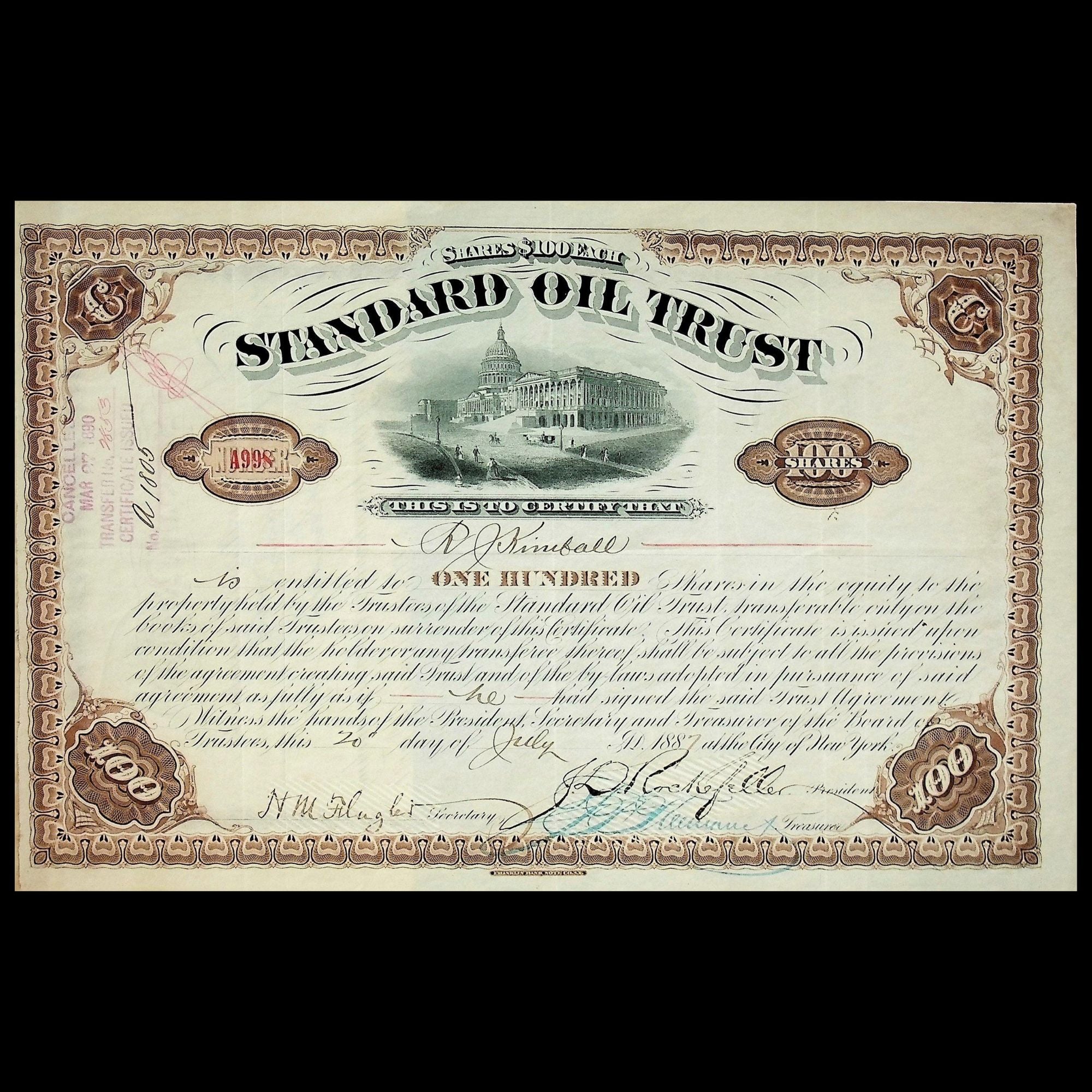Duke Power Company $10,000 Bond Certificate
Duke Power Company $10,000 Bond Certificate
Couldn't load pickup availability
150+ 100% Positive Reviews! ⭐⭐⭐⭐⭐
Are the certificates authentic?
Are the certificates authentic?
Yes, all of the certificates we sell are authentic stock and bond certificates unless otherwise mentioned in the description. At one point in time, this certificate represented a share of of the company, or a bond receipt. These certificates have been removed from circulation and digitalized, as seen by cancellation holes, stamps and writing on the certificate. We offer these certificates as a collectable item, not a security.
Brown Duke Power Company bond certificate for $10,000 from 1976 showing a 6.85% interest due Dec 1978. Features a woman with her son on the vignette. Cancellation holes present.
The Duke Power Company, now known as Duke Energy Corporation, was founded in 1904 by Dr. Walker Gill Wylie and James Buchanan Duke in Charlotte, North Carolina. Originally established to generate hydroelectric power from the Catawba River to supply nearby textile mills, Duke Power later expanded its operations to include coal, nuclear, and natural gas power generation. The company became a major electric utility in the southeastern United States and played a pivotal role in the region's industrial and economic development. Duke Power merged with Pan Energy in 1997 to form Duke Energy Corporation, which continues to be a prominent player in the energy sector, providing electricity to millions of customers across several states.
Materials and care
Materials and care
Here are some quick tips to preserve your certificate for decades to come.
Paper quality: Stock certificates were printed on a variety of certificate paper dating back to the mid 1800s. Most of these vintage collectable certificates have signs of used & wear , cancellation holes, pencil / pen writing, stamps, staples, adhesives, slight rips, missing coupons and other features.
Handling: Always handle the certificate with clean, dry hands or use cotton gloves to avoid transferring oils and dirt from your skin onto the paper.
Storage: Store the certificate in a cool, dry place away from direct sunlight, which can cause fading. Use acid-free folders or archival-quality plastic sleeves to protect it from moisture, dust, and physical damage.
Framing: If displaying the certificate, use a frame with UV-protective glass to prevent light damage. Ensure the certificate is mounted using acid-free materials to avoid any chemical reactions that could degrade the paper over time.
Avoid Exposure: Keep the certificate away from direct sun, extreme temperatures and humidity, which can cause the paper to warp or deteriorate. Avoid exposing it to pollutants, such as smoke or chemicals, which can cause discoloration.
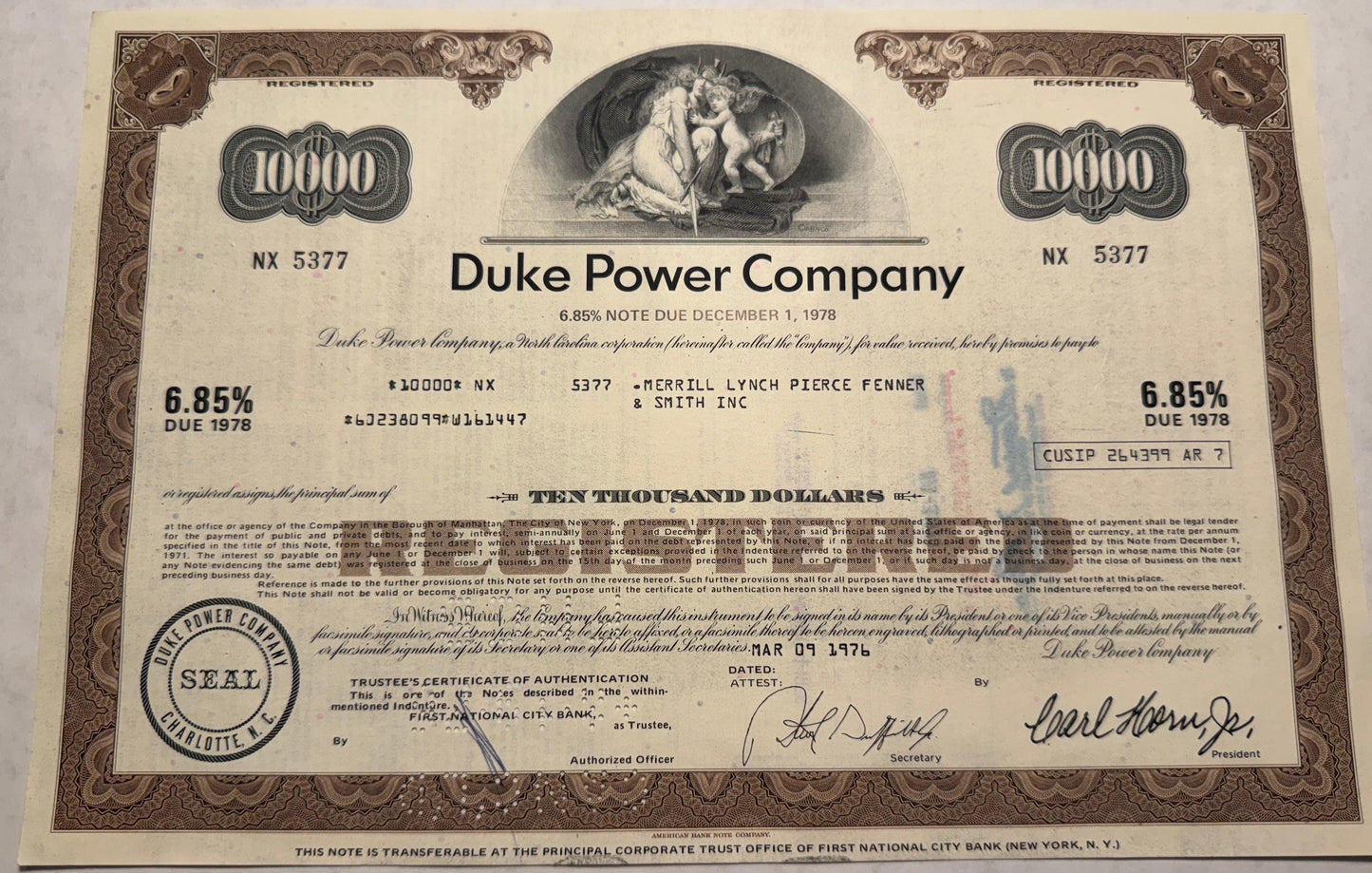
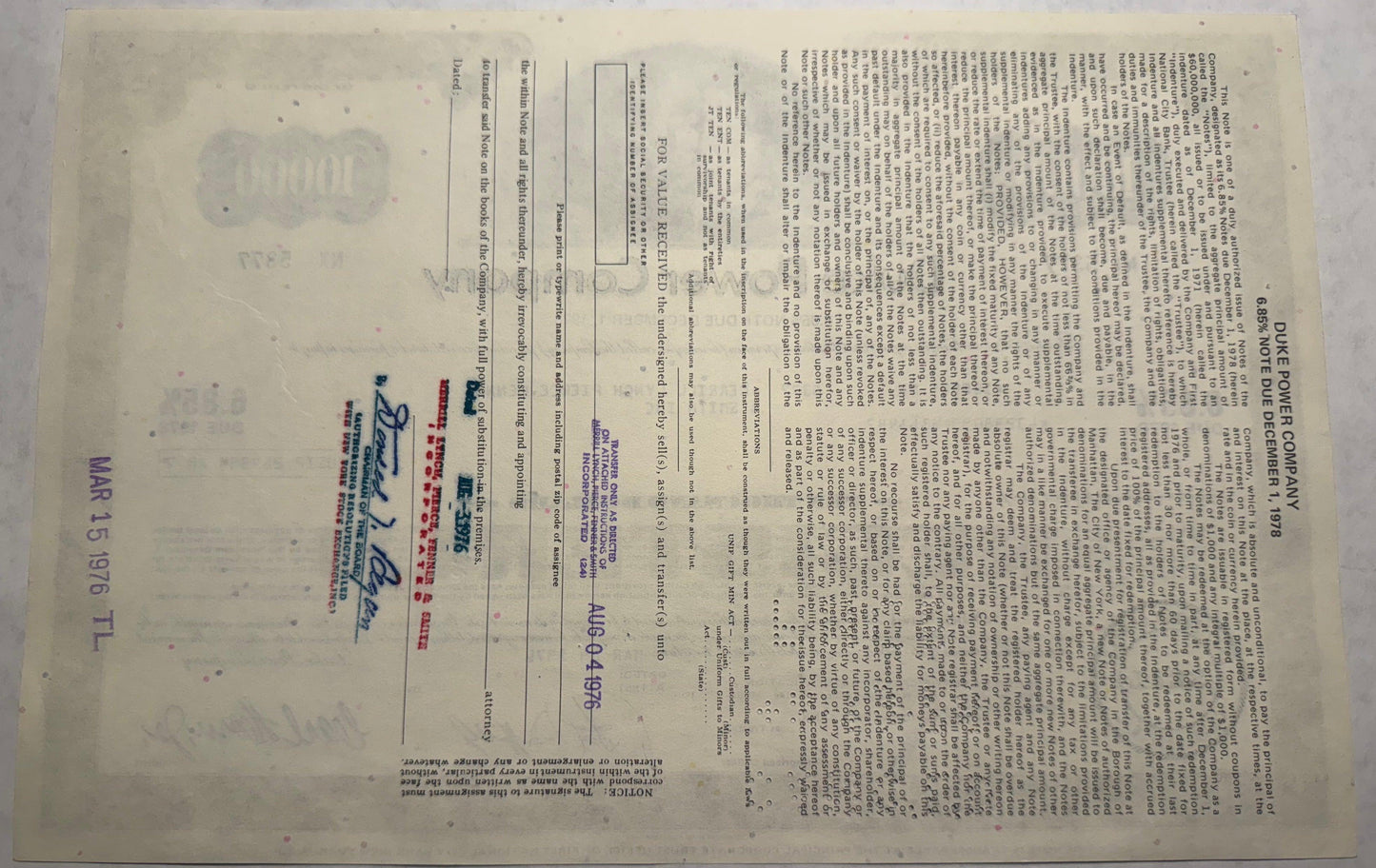
Secure payment with all major providers
Iconic American Railroads Stock & Bond Certificate Five Pack - 4x Stocks & 1x Bond Bundle
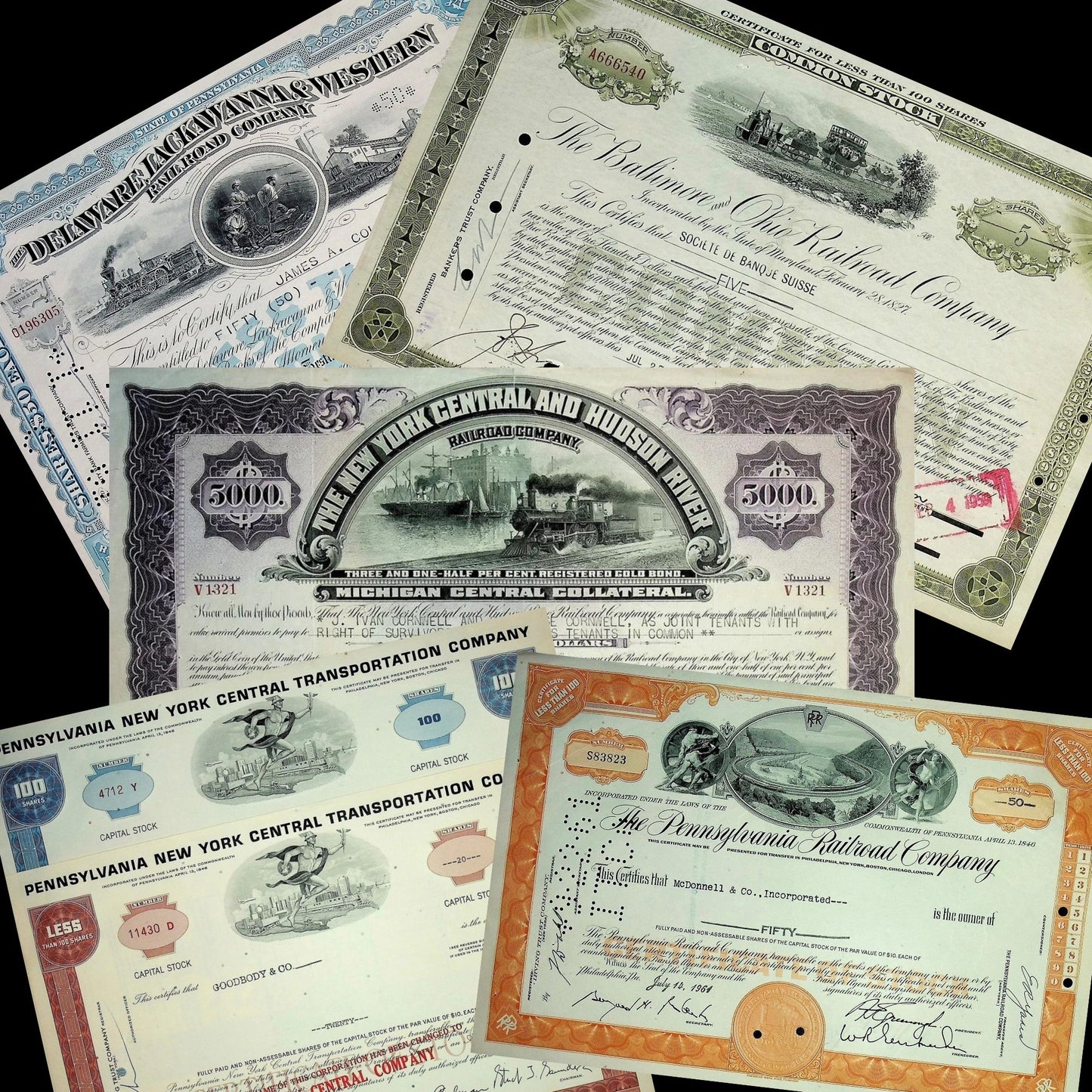
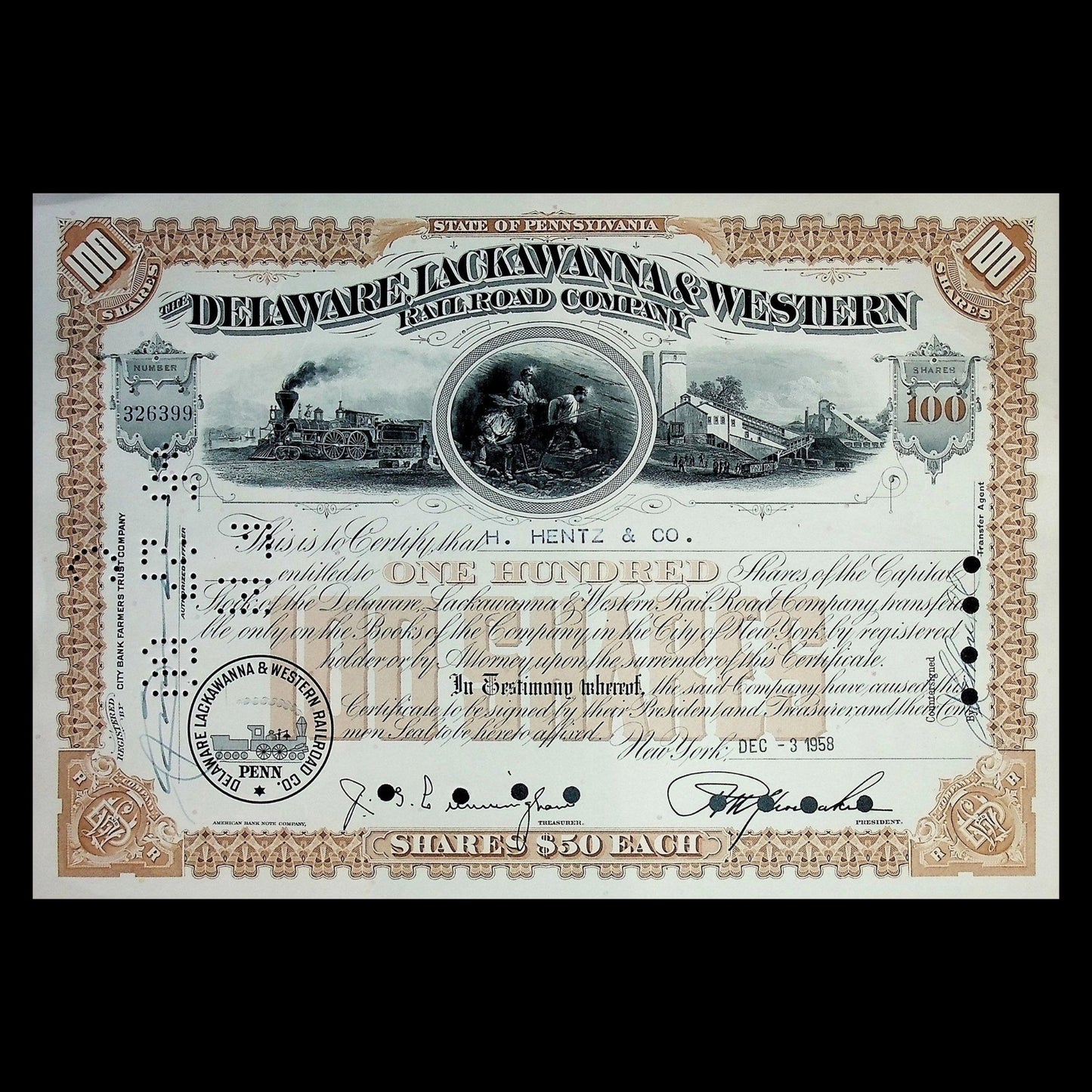
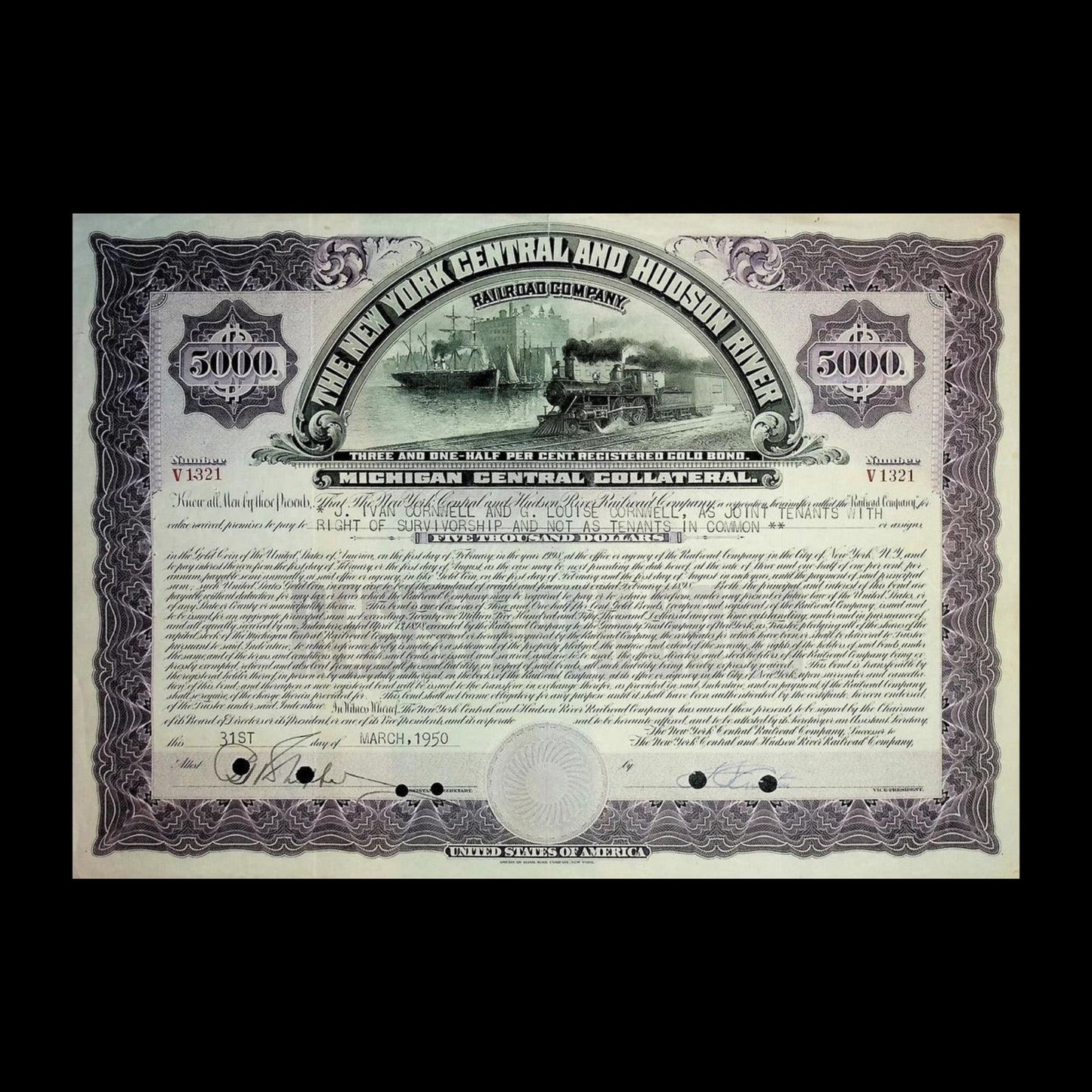
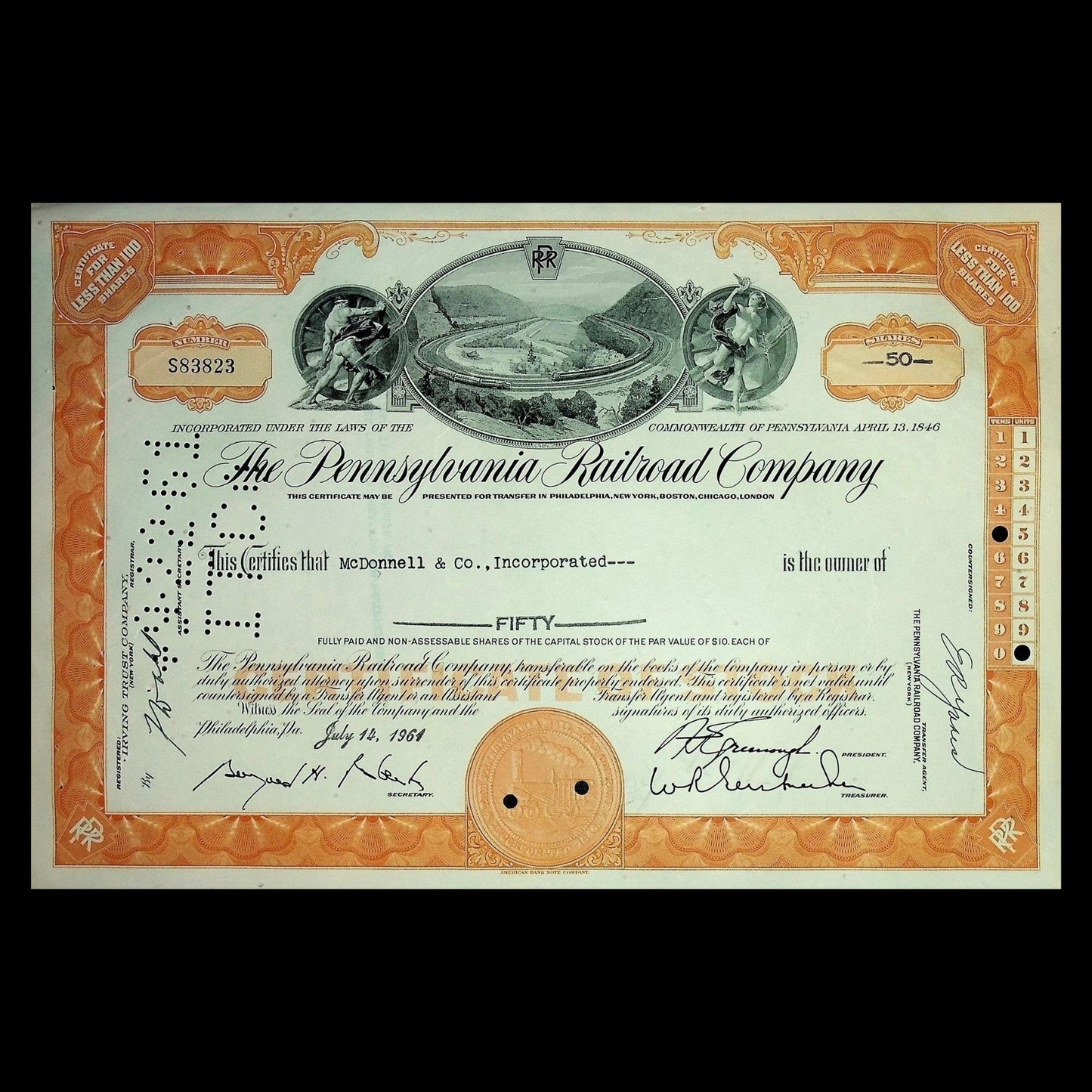
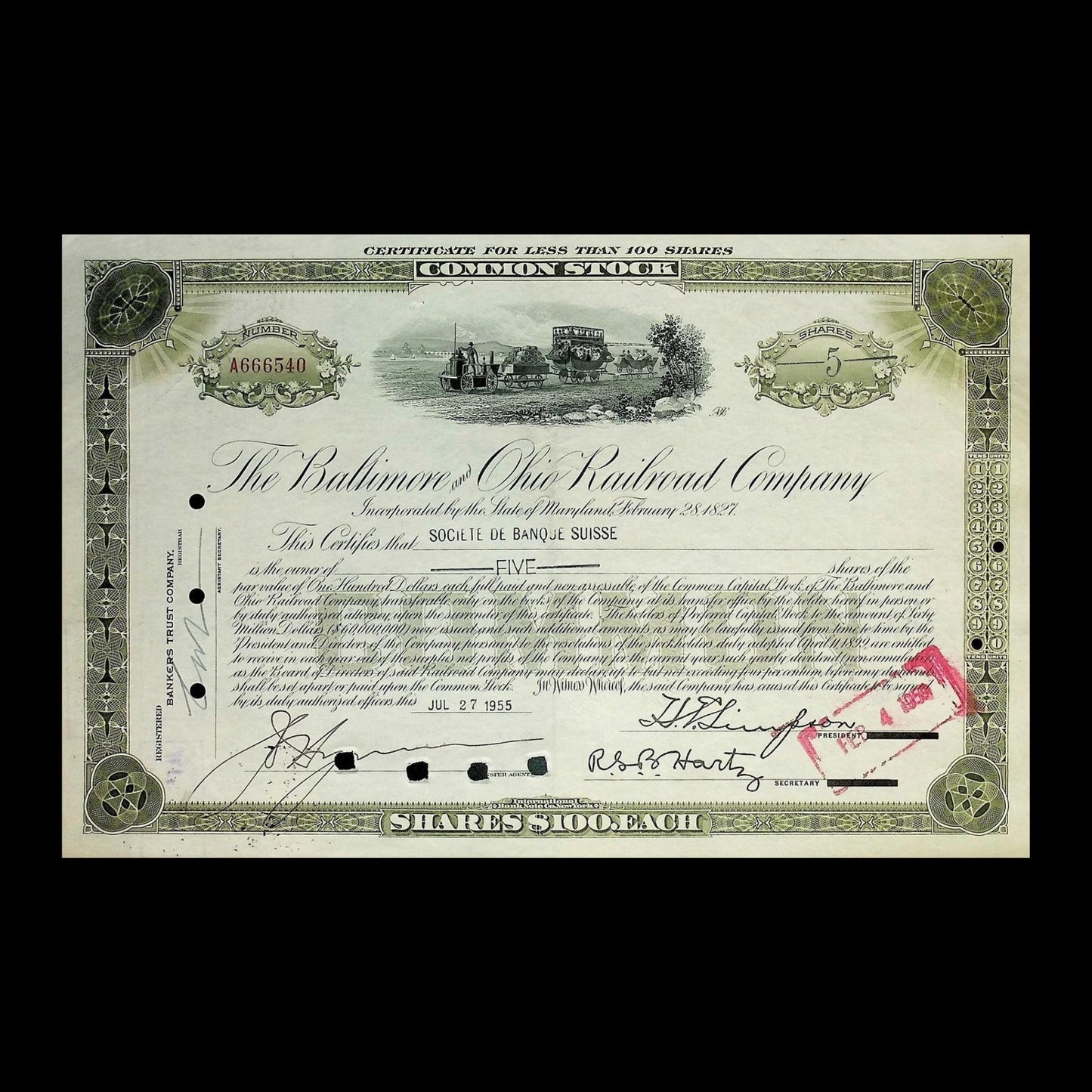
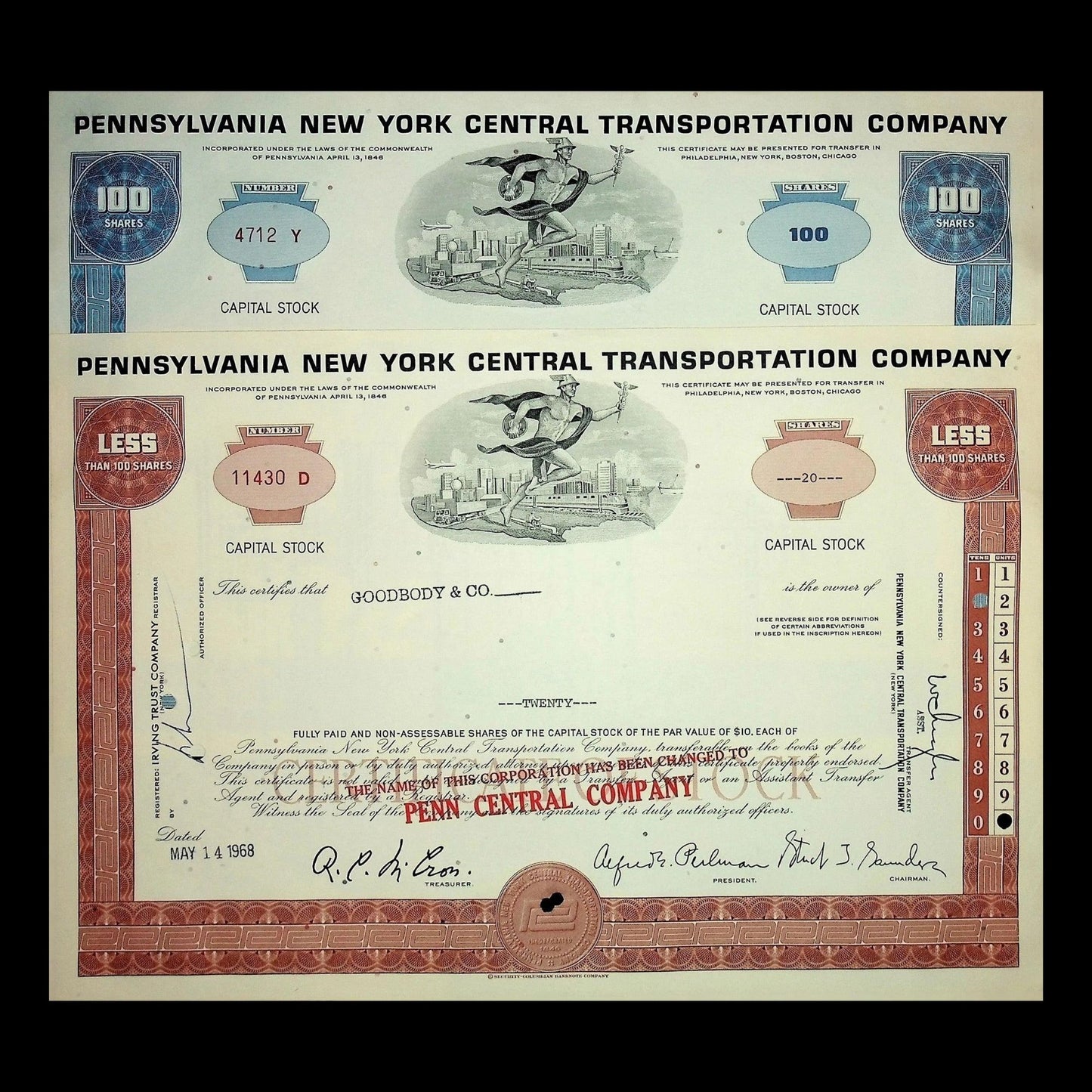
4x Stock Certificate Replica Postcard Pack of Iconic American Companies

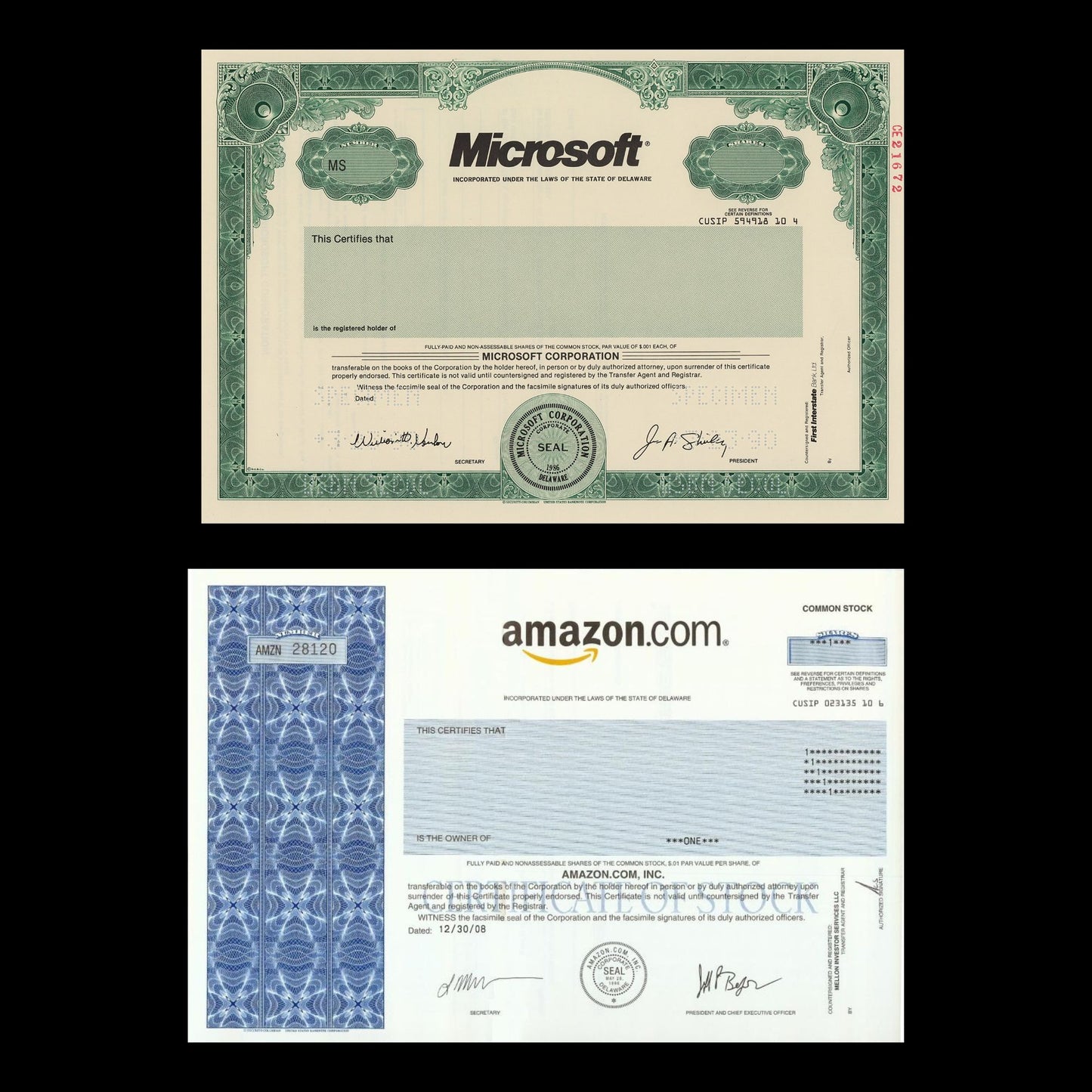
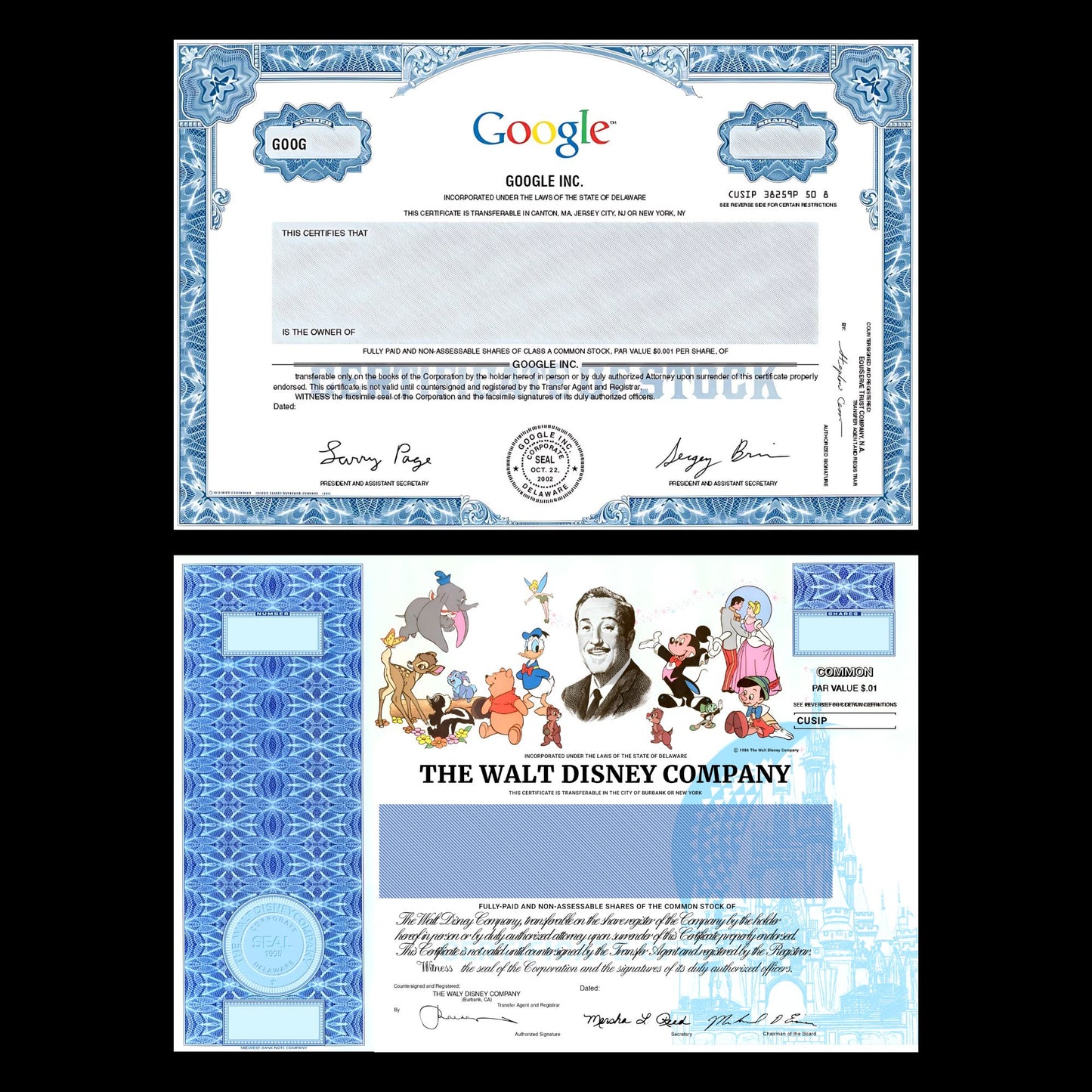
Discover 1,000s of Wall Street Collectables
Explore Our Collections
-
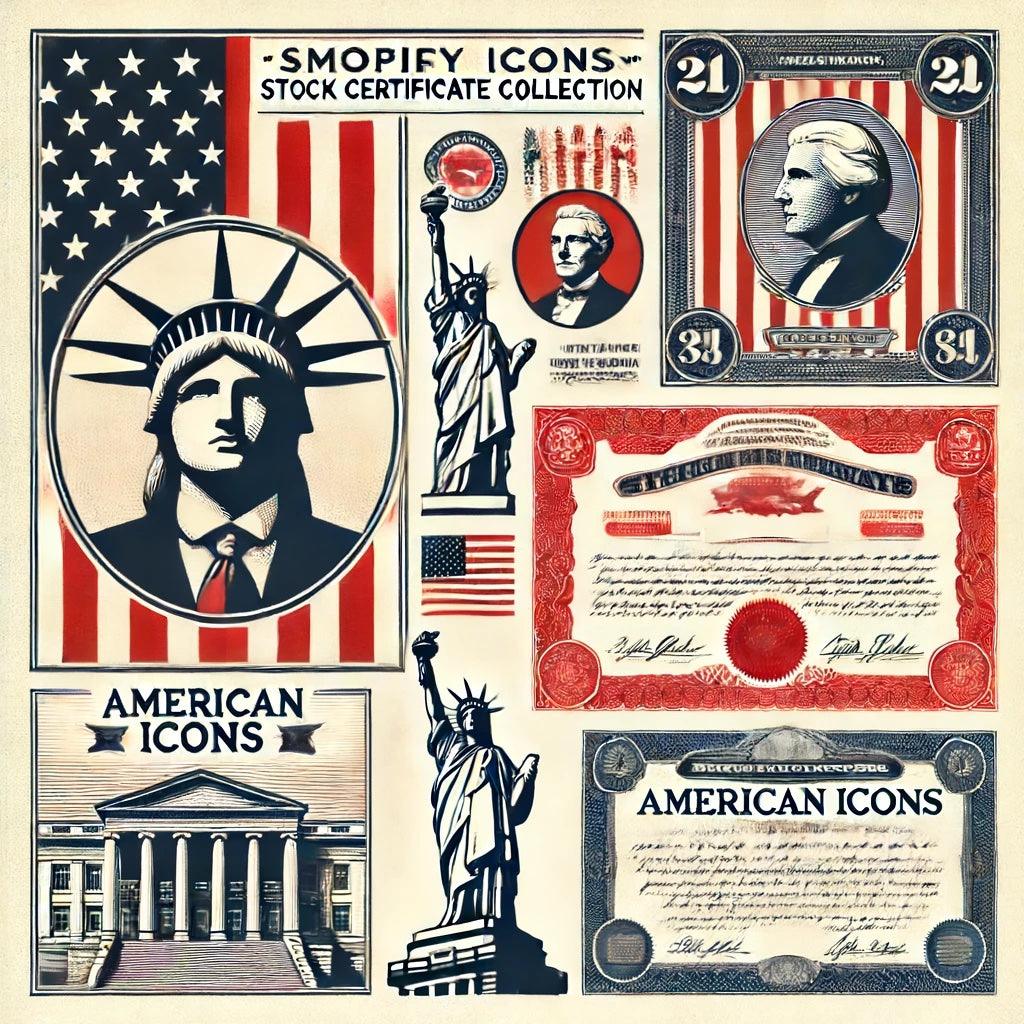
American Classics
Showcasing the evolution of American industry through beautifully engraved certificates from iconic...
-

Banks, Insurance & Investment
Discover the rich history of American finance with our collection of authentic...
-

Food & Drink
Collectible Food & Drink Stock & Bond Certificates for Sale - Hershey's, Nabisco,...
-

Transportation
Discover our collection of collectable stock and bond certificates for sale from...
-
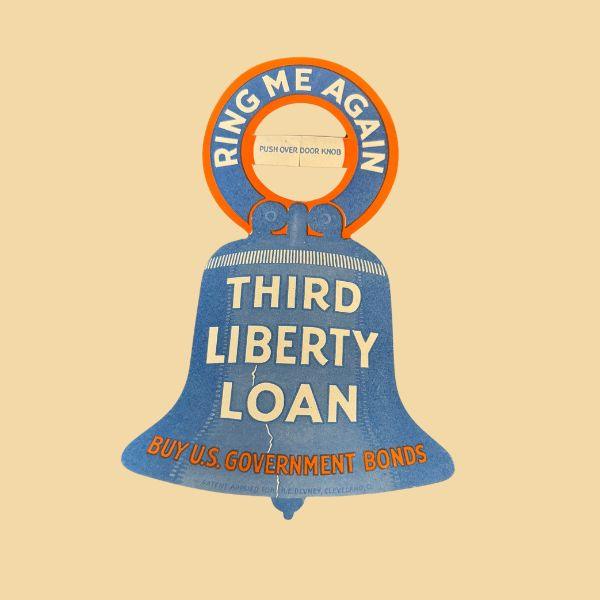
World Wars
Discover our unique collection of World War-era bonds and Disney wartime memorabilia,...







